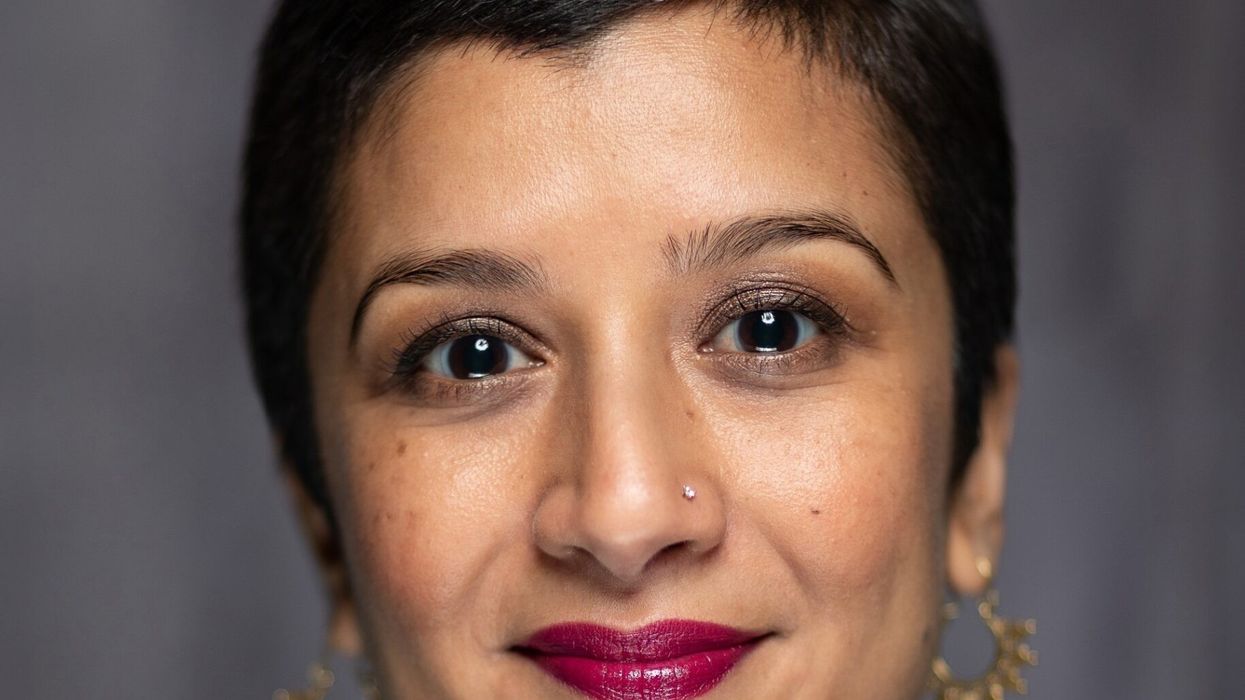WITH her book Unheard, Dr Rageshri Dhairyawan takes readers on a journey through history, revealing how not listening to patients has been ingrained in medicine from its inception.
The senior NHS doctor dissects who gets listened to and who doesn’t in medicine, and how this leads to a culture of silencing at every level – from the consultation room and workforce to research and global health.
She also describes her book as a “prescription for change” to help create a healthcare system that no longer dehumanises, but listens and subsequently improves care for all.
The ultimately empowering book, aiming to build a bridge between doctors and patients, also explores hidden truths connected to treatment and offers a way to reshape the health system for the future.
Eastern Eye caught up with the doctor to discuss her book and its key message. She also gave advice for those struggling to be heard in the healthcare system and revealed authors who have inspired her.
What inspired your book Unheard?
In 2013, I was admitted to the hospital with excruciating abdominal pain due to my endometriosis flaring up during fertility treatment. To my dismay, throughout my admission, I was denied adequate pain relief by the staff and made to feel like a fraud or attention-seeker. I think this was partly due to my gender and ethnicity, and stereotypes of being ‘an anxious south Asian woman’.
Thanks to my husband advocating for me, I finally got the treatment I needed. I didn’t complain at the time or afterward, as I did not want to be seen as more of a nuisance.
How did that experience lead to writing this unique book?
I felt silenced. I wondered, if this could happen to me, a senior NHS doctor, what happens to everyone else? To those who can’t speak English, or don’t have someone to advocate for them? To those with life-threatening illnesses?
For a long time afterward, I felt guilty for not speaking up. I wrote Unheard to break this silence. Second, it’s also for my patients who come from marginalised backgrounds and whose voices are seldom heard in healthcare policy.
Finally, as a doctor, I know that despite my best intentions, I don’t always listen well. I wanted to understand why that was.
Why is it so important to be heard?
We see the consequences of patients not being heard or believed far too often in safety investigations. They don’t receive the tests or treatment they need, which can lead to serious physical and mental harm. Patients report feeling gaslit, which increases mistrust in their medical teams and may deter them from seeking help when ill.
Did writing the book help you heal in any way?
Yes, it felt cathartic to use my experiences of being unheard in different ways to explore the issues and hopefully create positive change.
What was the biggest challenge in writing it?
Time. I was working full-time as a clinician and researcher, so balancing everything was difficult.
The cover image of her bookWho are you hoping will connect with this book?
I hope that patients (or their loved ones) who have experienced being dismissed in healthcare find that the book validates their experiences. I also want healthcare professionals and students to read it so they can reflect on their own practice, and policymakers to consider how they can develop services that encourage listening.
Is there a key message you want to convey?
When people say they don’t feel heard in medicine, the usual solution is to tell them to ‘speak up louder’. However, it’s hard to speak up when you’re at your most vulnerable. The responsibility for patients being heard should lie with the healthcare system – we must learn to listen better.
What does a fairer healthcare system look like?
A system with inclusion and equity at its core, valuing all voices equally and recognising the importance of patients’ voices at every level.
What was your favourite part to write?
I enjoyed writing the chapter Devalued: Why Doctors Don’t Listen. When I started, I thought it would be mainly about bias against certain groups of patients. But through my research, I learned that not listening to or believing patients is ingrained in our profession, something reported for centuries, and it starts in our training. I found this eye-opening and it shows how much we need to change.
However, I think doctors would find their jobs more enjoyable if we had the time and skills to listens well to our patients.
What advice would you give to those struggling to be heard by their healthcare practitioners?
I recommend preparing for appointments by writing down what you want to say or ask, bringing useful information like results or medications, and asking in advance for an interpreter if needed. Having a trusted friend or relative as an advocate can be very powerful. If you don’t feel heard, try using a phrase like, ‘Thank you, but I’m still worried about…’ If things go wrong, know your rights – how to complain or ask for a second opinion.
What sort of books do you like to read?
I mainly read fiction, and my favourite authors are Jhumpa Lahiri, Marian Keyes and Kate Atkinson.
Which writers inspire you?
I admire Annabel Sowemimo and Rachel Clarke, both practising clinicians and beautiful writers, who passionately use their books to advocate for better patient care in a meaningful way that I hope to achieve with Unheard.
Do you have plans to expand your writing with additional resources?
I have much more to say, so with the right opportunity, I’d absolutely love to write more.
Why should we all pick up your new book?
I hope you will find it a tool for advocacy and, hopefully, a fascinating and accessible read.
Unheard is available now, published by Trapeze




